Up and down the Kennebec Valley: Early Augusta families – Part 2
by Mary Grow
Ballard
Last week readers met James Howard, one of the first settlers at Cushnoc (which became Hallowell, which divided into Hallowell and Augusta) and some of his family members; and your writer promised information on other pre-Augusta settlers, Ephraim Ballard, Daniel Cony and Henry Sewall.
Thanks to her habit of keeping a diary, Martha Ballard’s life has been documented, especially in Laurel Thatcher Ulrich’s 1991 A Midwife’s Tale, which won the Pulitzer Prize in history and other awards. Martha often mentioned her husband Ephraim. After her death in 1812, the last eight and a half years of his life seem to be undocumented.
* * * * * *
Different on-line sources claiming to know Ephraim Ballard’s birth and death dates offer for his birth May 6, 1724, May 6, 1725, or May 17, 1725; and for his death Jan. 7, 1812, or 1821. The 1812 date is obviously an error; Martha Ballard died in May or early June 1812, and on May 1 wrote in her diary that her husband “went to the settlement, bot him some tobacco.”
Ephraim Ballard was born in Billerica, Massachusetts; the family moved to Oxford, Massachusetts, in 1726. (Contemporary maps locate Billerica northwest of Boston, close to the New Hampshire line, and Oxford south of Worcester, close to the Connecticut line; the two towns are more than 50 miles apart.)
In 1754 (Dec. 19, two sources say), Ephraim married Martha Moore (at least once called Martha Moores) in Oxford. According to on-line sources, they had nine children (one source lists 10), the oldest, Cyrus, born Sept. 11, 1756, in Oxford, and the youngest, Ephraim, born March 30, 1779, in Hallowell.
Three daughters died in childhood during a diphtheria epidemic in Massachusetts in June/July 1769: Martha, age eight; Triphene, age four; and Dorothy, age two. Son Jonathan, born in 1763, survived; he died in Hallowell in 1838. Martha was pregnant that spring/summer; daughter Hannah was born Aug. 6, 1769.
North wrote that Ballard was 50 years old when he came from Oxford to Fort Halifax in 1775 and, another source says, leased a piece of land near the former fort. His wife and children had joined him by Oct. 15, 1777, when the family moved into a house owned by John Jones near the confluence of Bond Brook and the Kennebec River. Jones was a fellow surveyor and an avowed Loyalist who had left town under duress.
(Henry Kingsbury, in his Kennebec County history, said Bond or Bond’s Brook was also called Jones Brook, Ballard’s Brook or simply the mill stream. Thomas Bond, who died in 1815, built the first brick house in Augusta.)
One source said the move south to Hallowell was because other settlers suspected Ballard of Loyalist sympathies and the local Committee of Safety advised him to leave. Others suggested he relocated to make a home for his family. In any case, he took over Jones’ house and mill or mills.
North described the Oct. 17, 1777, session of the Court of General Sessions (on which James Howard served), quoting what he acknowledged was a biased account by a Tory, Rev. Jacob Bailey. Jones and Ballard, Ballard listed as a Vassalboro resident, were among men who were charged with being dangerous to the Revolution and liberty; they faced transportation (deportation or exile).
Three jurymen named Patten, two brothers and the son of one of them, known Tory sympathizers, stood out against the rest for 22 hours. Then, North wrote, the jury sent the judges a query: “Is speaking a few exceptional words counteracting the struggles of the American States for freedom?”
The judges all said yes, North wrote, and Justice Joseph North, of Cobbossee, added that “even thinking or conceiving that the public administration was unjust or injurious was evidently a crime” deserving transportation. The Pattens were unpersuaded, the jury deadlocked and court was adjourned.
Before the court reconvened near the end of 1777, Vassalboro reconsidered its vote and exempted Ballard and others from trial if they paid prosecution costs, which North said came to $100 apiece.
Alma Pierce Robbins wrote in her history of Vassalboro that town records confirm the account, though she dated the court session to the fall of 1775. She wrote that Vassalboro voters were “touched with a little compassion” when they reversed their vote, and added that the defendants paid the $100 costs.
After the Revolution, the Ballards became well-regarded citizens of Hallowell. In 1780, North wrote, Ephraim Ballard “was allowed by the town 200 [British pounds] for his contribution to the revolutionary cause.”
Ballard is listed in one source as a fourth-generation millwright, rather than a surveyor, and various sources mention mills he owned. One on Bond Brook (probably originally John Jones’) burned in August 1787; Ballard built a new one on the same site, with a lively raising celebration on July 7, 1788, followed by a dance that lasted until midnight.
Martha Ballard’s diary and other sources show that he was much in demand as a surveyor. Early work included laying out new settlements for the Kennebec Proprietors, owners of 600,000 or so acres on both sides of the Kennebec River.
In 1796, North wrote, the Commonwealth of Massachusetts hired him to survey potential settlements on the Penobscot, in what became Hampden and Bangor.
On Aug. 23 of that year, according to his wife’s diary, a committee hired him to go to Dresden “to lay out a road to the point.” After preparations that included bringing “two birch cannoes [her spelling] to our shore,” he left at 10 a.m. Sept. 5; he came home Oct. 13, Martha wrote.
North did not mention Ephraim Ballard in the early 1800s, but Martha’s diary shows him actively surveying until the spring of 1812, settling lot lines for individual landowners and sometimes laying out new roads for a town.
In mid-April 1801 he was dividing 2,000 acres somewhere between the Kennebec and the Penobscot; in late June that year he had a job in Bowdoinham, in September, in Readfield, in November, in Fairfield; Dec. 22 he spent running the Sidney-Augusta town line.
In 1803, Martha wrote that he “sett [her spelling] out to go to Davis Town” on July 26; he returned on Sept. 27 and “went to attend coart [her spelling] directly.” The length of time he was away suggests that he was working in Maine’s current Davis Town, in Franklin County north of Rangeley and Mooselookmeguntick lakes, almost 100 miles from Augusta.
The diary shows that he farmed his land, worked on his barn, attended church services more often than Martha did, went to town meetings and accompanied Martha to funerals. In July 1807, he and Cyrus (presumably their oldest son Cyrus) spent five days “raising the meeting house.” The project began July 14, when they “went to hear prayers on the raising of the meeting house; they came home and took breakfast, and went down again to the raising.”
On Sept. 20, 1809, the diary says that “Mr. Ballard went to the dedication of the new meeting house.” (The one that was started more than two years earlier?)
Ballard was also intermittently active in town affairs. At the 1784 annual town meeting, he was one of a three-man committee whose job was to find the town a minister. North recorded later involvements in the sometimes-contentious process of finding a man whose doctrines suited everyone.
In 1784, too, Ballard was elected a selectman; he served through 1787, one source said.
North wrote that Ballard was a tax collector by 1793, when he was one of two men to whom 150 British pounds worth of tax bills were committed “for assessments for the [newly-built] meeting-house.”
By June 1794, Hallowell had been divided into three parishes. North wrote that voters at a June 18 meeting in the middle parish (part of Augusta after Feb. 20, 1797) chose Ballard as tax collector. Daniel Cony was meeting moderator, and Henry Sewall was chosen as one of three assessors, North said.
Martha’s diary says Ballard was Augusta’s tax collector by 1800. She occasionally mentioned that he was doing something tax-related – for example, on Oct. 21, 1801, “collecting taxes on east side the river.”
At the end of December 1802, she recorded that he had gone “to settle with the town and county treasurers; past receipts in full for some taxes and in part for others.”
At the beginning of 1804, Ballard was jailed in Augusta, apparently for failing to collect some $800 in taxes. He was soon allowed out, as long as he checked back in at night; his wife recorded spending an afternoon with him at “Mr. Thwing’s” on Feb. 2, and in May he attended the raising of the school house and later worked on the building.
On April 26, 1805, Martha wrote that she had not seen her husband for more than nine weeks; “hear he is well, for which I bless God.” On July 4, she wrote that her husband “returned home at 10h. [hours] evening,” apparently free.
Later diary references show that he was still tax collector in 1808.
* * * * * *
After Hallowell was divided in February 1797, the first town meeting in the northern part (temporarily named Harrington) was moderated by Daniel Cony. North’s list of town officials includes both Ballard sons-in-law: Hannah’s husband, Moses Pollard, was on the fish committee; and Dolly’s husband, Barnabas Lambard, was a fence-viewer and a surveyor of lumber.
The 1797 “Estimate of Property” in Augusta that North quoted shows Ephraim Ballard owned a house and a barn; 240 acres (making him a substantial landowner, though not the largest), of which two acres were “tillage” and 13 “mowing”; two oxen and two cows.
By this time Ephraim and Martha were living in the second of the three Augusta houses they inhabited, all apparently rented. North wrote that their first move was because John Jones’ brother Peter reclaimed the Bond Brook house in the spring of 1791.
An on-line Maine Humanities Council guide to Ballard-related locations says, “they moved to a farm owned by Samuel Howard [probably James Howard’s son] near what would become the Hallowell/Augusta town line.” Martha’s diary gives the date of the move: Wednesday, April 21, after at least two weeks’ preparation.
The previous Sunday the two Ephraims, father and son, had gone to the Howard house to plow the garden, “which we are to improve,” during their tenancy. The senior Ephraim spent three days moving furniture and other belongings.
On November 26, 1799, Martha and Ephraim moved back to the north side of Augusta, to the farm their son Jonathan had bought, “at the fork between the roads leading to Belgrade and Sidney.” This time Cyrus helped move their possessions.
Over the winter of 1811-12, they moved from their own house to Jonathan’s from the end of November to the middle of April, according to the diary. Martha provided no explanation; your writer suspects Maine’s winter weather.
Ephraim Ballard died Jan. 7, 1821, aged 96, according to North.
Main sources
Nash, Charles Elventon, The History of Augusta (1904).
North, James W., The History of Augusta (1870)
Websites, miscellaneous.
Responsible journalism is hard work!
It is also expensive!
If you enjoy reading The Town Line and the good news we bring you each week, would you consider a donation to help us continue the work we’re doing?
The Town Line is a 501(c)(3) nonprofit private foundation, and all donations are tax deductible under the Internal Revenue Service code.
To help, please visit our online donation page or mail a check payable to The Town Line, PO Box 89, South China, ME 04358. Your contribution is appreciated!


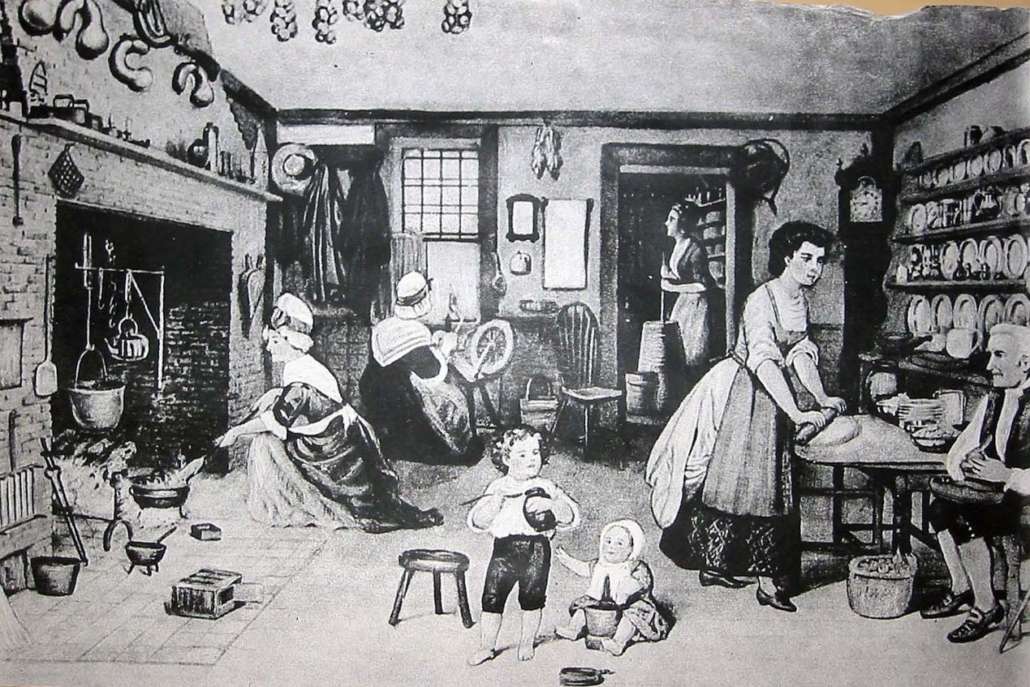
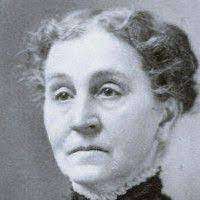
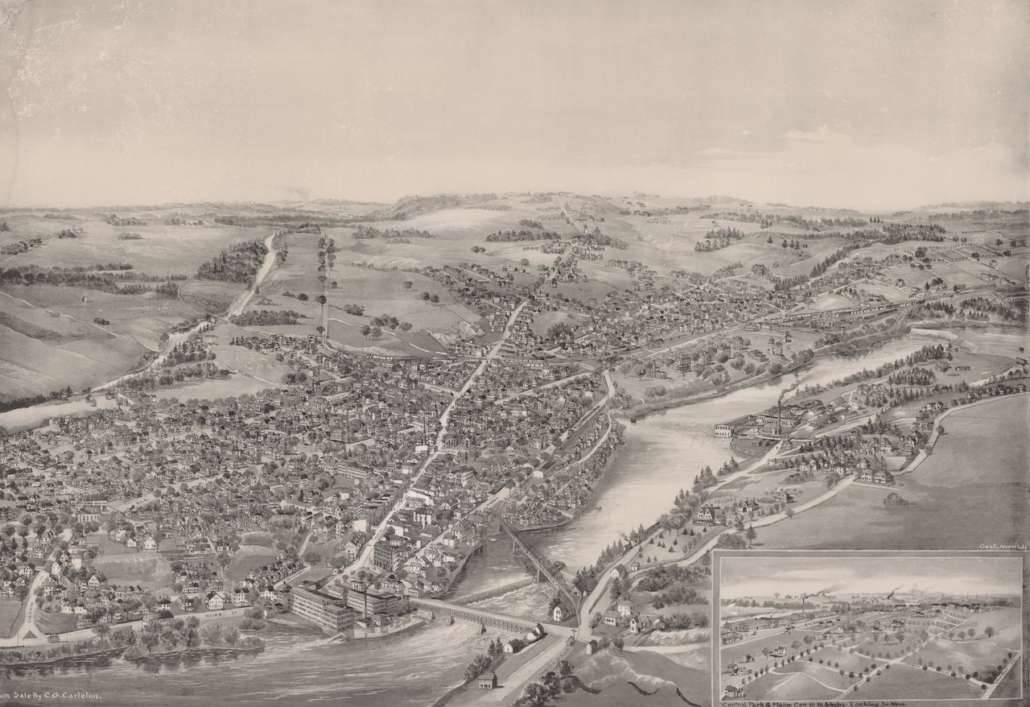
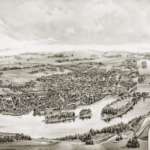
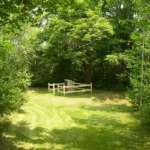
Can you explain how this photograph of Matha Ballard came to be? She died in 1812,10 years before the invention of photography.